In a significant development within Pennsylvania’s extensive opioid litigation, Judge Barry Dozor of the Delaware County Court of Common Pleas has sanctioned the disbursement of $28.4 million in contingency fees to law firms representing the state’s plaintiffs who entered into a substantial 2022 opioid settlement.
The allocation, approved on December 14, represents the initial tranche of attorney fees from Pennsylvania’s $1.07 billion portion of the $26 billion global settlement with Johnson & Johnson, Cardinal Health, McKesson, and AmerisourceBergen.
Here, our Philadelphia class action litigation attorney provides a comprehensive guide to the key things that you should know about the case
Fee Distribution
The fee distribution, endorsed based on recommendations by retired Judge Joel Schneider, a special master overseeing the Pennsylvania Opioid Fee Fund, will be sourced from the state’s designated share of the global settlement. Schneider has divided the $28.4 million among 11 law firms, with payments scheduled annually over a five-year span. The individual awards range from approximately $4,000 for Philadelphia-based Levy Baldante Finney & Rubenstein to $10.7 million for Levin Papantonio Rafferty of Pensacola, Florida.
Patrick Howard, a partner at Saltz Mongeluzzi Bendesky representing plaintiff Delaware County, indicated that Dozor’s recent order constitutes the first of two determinations related to fees from the opioid fee fund. The fund comprises segments for contingency fees, now approved, and common benefit fees, to be decided in 2024, and awarded to a smaller group of actively involved attorneys.
The fee approvals mark part of the broader conclusion of Pennsylvania’s prolonged opioid litigation, with ongoing negotiations focusing on the allocation of a subsequent round of multibillion-dollar settlements involving pharmacies and other drug companies. Howard highlighted that a substantial majority of the commonwealth’s litigation against defendants has concluded, emphasizing that around 95% of cases have been resolved.
Although some litigants, including Philadelphia District Attorney Larry Krasner, continue pursuing claims against certain pharmacies, and a handful of smaller defendants face unresolved claims, Howard asserts that the majority of opioid lawsuits in Pennsylvania, including those from his client, Delaware County, are now resolved. The litigation’s focus may shift, as Dozor weighs whether to return the third-party payer litigation to Philadelphia, signaling a potential transition following the culmination of significant opioid litigation efforts in the state.
